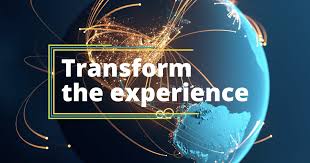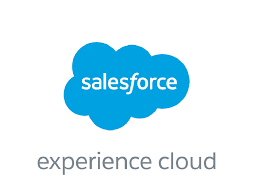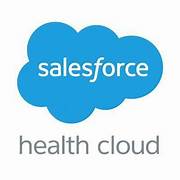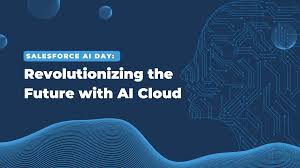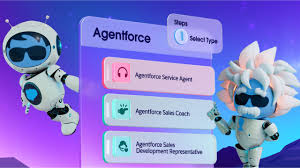AI is Revolutionizing Salesforce: Transforming Sales Teams in the Era of AI Artificial Intelligence (AI) is reshaping the sales landscape, disrupting traditional processes, and redefining how businesses interact with customers. The rapid adoption of AI-native systems is altering how data is captured, how sales teams engage, and how the entire sales cycle is structured. The shift toward AI-driven solutions is fueling unprecedented opportunities for sales organizations to achieve more by doing less manual work. Success in this transformation will favor those who use AI to make smarter, data-driven decisions, shifting the focus from activities to meaningful achievements. From Rolodex to Real-Time Insights: The Evolution of Sales The history of sales is one of continual evolution. From the bartering days of ancient commerce to the introduction of Rolodexes in the mid-20th century, and later to early CRM tools like Act! and Siebel Systems, the industry has always innovated to meet changing customer needs. Salesforce’s arrival in 1999 brought CRM to the cloud, empowering sales teams with unparalleled accessibility. Yet, all these systems had one thing in common—they relied on human input. Logging calls, updating lead statuses, and noting feedback all depended on sales reps’ diligence. That dependency is now being disrupted by AI, which captures and processes data autonomously. AI-Native Systems: Capturing Context Without Human Input AI-native systems represent a seismic shift. Unlike traditional CRMs, these systems capture data in real-time without relying on human intervention. From emails and Slack messages to Zoom calls and social media interactions, AI aggregates unstructured data into actionable insights. This creates a rich, context-driven record of customer behavior, reducing reliance on manual entry and unlocking deeper understanding. Automating the Mundane: Eliminating Data Entry AI is erasing the inefficiencies of manual processes. Sales development representatives (SDRs) once spent countless hours cold-calling, sending follow-ups, and updating records—a monotonous grind that yielded limited value. Today, AI automates these tasks, enabling SDRs to focus on high-impact activities like relationship-building and deal-closing. This automation, often referred to as intelligent pipeline management, identifies prospects, crafts personalized outreach, and schedules meetings—effortlessly managing the early stages of the sales funnel. AI as a Partner: Voice Agents and Real-Time Coaching AI is not just automating tasks; it’s enhancing human performance. AI-powered voice agents can now assist sales reps during live calls by offering real-time coaching. When a prospect raises an objection, the AI provides instant suggestions based on historical data, empowering salespeople to respond more effectively. This real-time guidance helps sales teams navigate complex conversations with confidence, boosting close rates and accelerating results. Personalization at Scale: Tailored Engagement Across Pipelines Personalization has long been a cornerstone of effective sales, but AI has made it scalable. AI tools analyze customer behaviors and preferences, allowing sales teams to tailor messages, proposals, and outreach at an individual level—even for thousands of prospects. From detecting website visits to auto-generating customized content, AI enables hyper-relevant interactions that build stronger connections with leads and customers. Breaking Down Silos: Unifying Sales, Marketing, and Customer Success AI is bridging organizational divides. Historically, sales, marketing, and customer success operated in silos, each pursuing independent goals. AI aligns these functions around a shared understanding of the customer, fostering collaboration and a unified go-to-market strategy. By consolidating data from every customer touchpoint into a single system of record, AI empowers teams to work together seamlessly, ensuring a consistent and coordinated customer experience. Systems of Record for the AI Age: The Importance of Context Unlike traditional CRMs that rely on structured fields, AI-powered systems excel at capturing unstructured data—conversations, social media mentions, and survey responses. These systems provide the context sales teams need to make better decisions. This rich contextual data benefits not just sales but also product development, marketing, and customer success teams, enabling them to refine strategies and create more responsive organizations. Redefining Metrics: From Activities to Achievements Traditional sales metrics often emphasized activity—calls made, emails sent, meetings booked. AI is shifting the focus to outcomes. By tracking the quality and impact of interactions, rather than the volume, sales leaders can better understand what drives success and optimize their strategies accordingly. The Future of Sales: Empowered by AI AI is not replacing salespeople; it’s empowering them. By automating repetitive tasks and delivering actionable insights, AI frees up teams to focus on building relationships, solving problems, and closing deals. To thrive in this new era, organizations must embrace AI as a core part of their strategy. The question for sales leaders is no longer whether to adopt AI but how quickly they can leverage it to gain a competitive edge. Embrace the future of sales—where intelligent systems drive outcomes, and human ingenuity takes center stage. AI is revolutionizing Salesforce by helping businesses improve customer relationships, streamline operations, and make better decisions: Like Related Posts Salesforce OEM AppExchange Expanding its reach beyond CRM, Salesforce.com has launched a new service called AppExchange OEM Edition, aimed at non-CRM service providers. Read more The Salesforce Story In Marc Benioff’s own words How did salesforce.com grow from a start up in a rented apartment into the world’s Read more Salesforce Jigsaw Salesforce.com, a prominent figure in cloud computing, has finalized a deal to acquire Jigsaw, a wiki-style business contact database, for Read more Health Cloud Brings Healthcare Transformation Following swiftly after last week’s successful launch of Financial Services Cloud, Salesforce has announced the second installment in its series Read more


